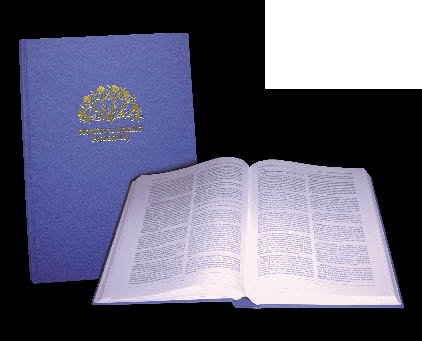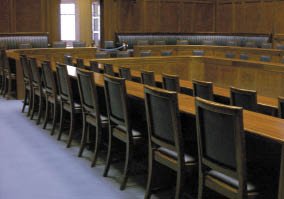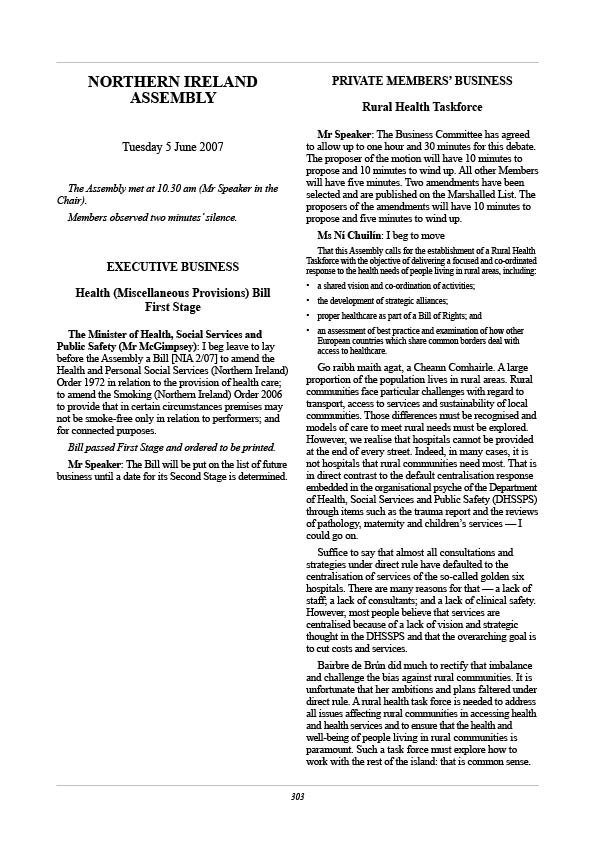Factsheet 6
Office of the Official Report (Hansard)
What does the Office do?
The Office does exactly what its name suggests - it produces the Official Report of all sittings of the Northern Ireland Assembly, including details of debates, resolutions, questions, votes etc. A report is published after every sitting and is available to any member of the public.
The name Hansard comes from Thomas Curson Hansard, who started publishing a daily record of proceedings in the House of Commons in the early 19th century, and the name has become the recognised title of parliamentary reports around the world.

Hansard provides a full report of what happens in the Assembly, which sits for approximately 70 days each year, and those meetings of its Committees that involve legislation or taking evidence. It lists the names of all the Members who speak, provides a report of what they say and records all the Assembly’s decisions.
The reports are published at 8:30am the day after each Assembly sitting. After approximately every 10 sittings, a bound volume containing reports of all those sittings is published - this is the definitive version of what happened in the Assembly and contains details of all the debates, relevant Committee meetings and answers to written questions.
It is important to understand that a full report is not simply a verbatim transcript of what goes on; rather, it is an edited version. The proper definition of the report is based on that contained in Erskine May (the parliamentary “bible”) and was adopted in 1907 by the Select Committee on Parliamentary Debates at Westminster.
It states that the report “... though not strictly verbatim, is substantially the verbatim report, with repetitions and redundancies omitted and with obvious mistakes corrected, but which on the other hand leaves out nothing that adds to the meaning of the speech or illustrates the argument”.
How does the Office do its job?
The Office team works under the direction of the Editor of Debates, and includes deputy editors, assistant editors, parliamentary reporters and administrative staff.

Whenever the Assembly is sitting, a parliamentary reporter sits in on the proceedings (which are also tape-recorded) for a period of five minutes and makes a log of what goes on. This five-minute recording is known as a “take.” The log will identify the Members who speak and contain brief details of what they say, including any difficult words and phrases, quotations or statistics.
At the end of their take, staff compile an edited transcript of everything that happened, based on their log and the tape recording. It is then sent to an assistant editor for checking, and the process is repeated throughout the day until the Assembly has finished its business. At that stage, all the takes are brought together and given a final check. Once that is complete, the full report is sent for printing and is available in printed form and on the Assembly’s website the following morning.
Assembly Members have the right to examine the Hansard report before it is published, and they can refer to the Editor any suggested amendments or corrections. However, it is up to the Editor to determine whether changes should be made. Changes that would in any way alter the meaning of what was said in the Assembly may not be made. It is also important to note that Members may examine only their own contributions - they are not allowed to see those of other Members.
The procedure for covering appropriate Committee meetings is broadly similar, although, as witnesses are also entitled to see how Hansard intends reporting their evidence, reports can take slightly longer to publish.
What use is the Official Report?
As the official record of the Assembly, Hansard is a hugely important source of information. It can be used by anyone who wants to know exactly what went on in the Assembly. For example, it will list how your Member of the Legislative Assembly voted on an issue and allow you to find out what he or she said on a particular matter. Equally, it will allow politicians, lawyers or the media to determine the exact intention of legislation passed by the Assembly.
Just as importantly, Hansard provides a record for posterity. It offers a day-to-day record of the proceedings of the Assembly, reflecting attitudes to the significant issues of the day and the changing values and views of society. In short, it will help future generations paint a picture of how we live today and how and why we make decisions.

Where can I get copies of the Official Report?
Hard copies of Hansard can be purchased through The Stationery Office or accessed on the Assembly web site, archive.niassembly.gov.uk
How can I get in touch with the Office?
Anyone who would like more information on the work of Hansard can contact the Office of the Official Report at:
Office of the Official Report (Hansard)
Northern Ireland Assembly
Parliament Buildings
Stormont
Belfast, BT4 3XX
Tel: 028 90 521476
Fax: 028 90 521805
E-mail: hansard@niassembly.gov.uk
Assembly Information
Public Information Service
Northern Ireland Assembly
Parliament Buildings
Belfast, BT4 3XX
NIA General Enquiries
Tel: +44 (0)28 9052 1333
Fax: +44 (0)28 9052 1980
Email: info@niassembly.gov.uk
